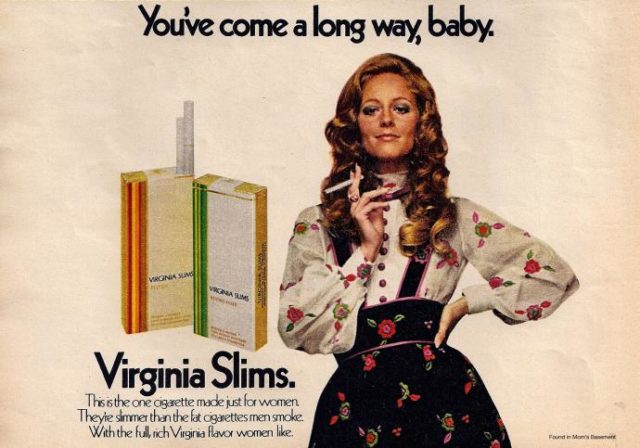iPaulina

The Politics of Puffing
When smoking was a feminist symbolWhat first comes to mind when you think about smoking cigarettes? Most likely you think of the health risks like cancer associated with it. However, in the 1920-30s smoking was seen as a symbol of female empowerment.
Industrialisation in 1920s America was happening rapidly; people had most of their basic necessities met and companies needed people to buy things they didn’t need. Meet Edward Bernays – renowned figure of public relations and propaganda. He understood how to appeal to the masses; companies caught on quickly – this man could sell products for them. Most infamously, cigarettes. In the dawn of the First World War, many women started working in ‘male’ jobs. But so many men were at away at war, thus the cigarette industry no longer had their most significant consumer base.
Tobacco companies turned to their next target: women. An advertising campaign ensued that exploited ideas of liberation, power and similar values to recruit women as consumers. They changed the image of smoking from something ‘manly’ to the increasingly popular idea of female independence. Women smokers were portrayed as empowered, attractive and athletic. Lucky Strike’s 1925 marketing pitch to women told them to “reach for a Lucky instead of a sweet.” The message? Smoke and you’ll be thin.
The feminist movement played right into cigarette companies’ hands. Soon the tobacco industry intensified its campaign and enlisted feminism to recruit even more smokers. Smoking was repositioned as not only respectable but sociable, fashionable, stylish, and feminine. Women were told that housewives and working women alike deserved to indulge in the pleasure of smoking. Advertisements took advantage of women’s psychosocial needs, linking smoking to both equality and pleasure. ‘We understand women,’ cigarette advertisements seemed to say. And it worked – 1 in 3 women smoked during the 1960s in the USA.
Edward Bernays, the mastermind behind it all, was well aware of the risks smoking posed and desperately persuaded his wife not to smoke – oh, the irony. But that’s business, baby. While championing female empowerment, he compromised female health. It almost seems satirical.
With this in mind, it raises questions as to how corporations today hijack the feminist movement for monetary gain. ‘Girl power’ T-shirts are sold while the same company pays poverty wages to women in developing countries working in dangerous factory conditions. In conclusion, it’s important for us all to consider how we interact with these influential corporations and think about the ethics of our spending habits as individuals.
Eppie VI







